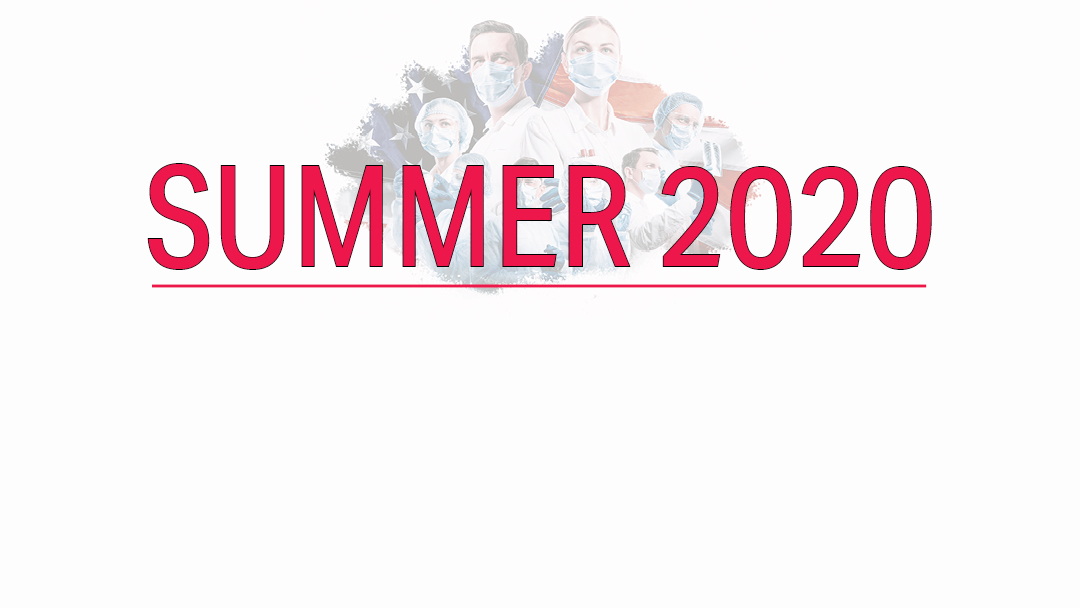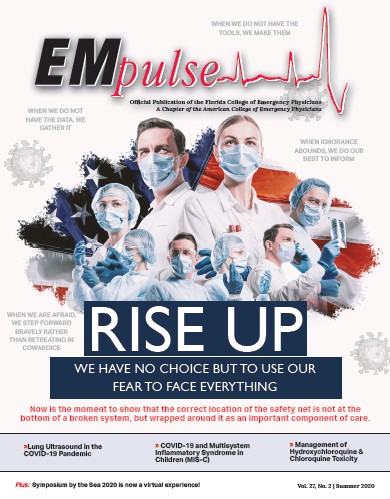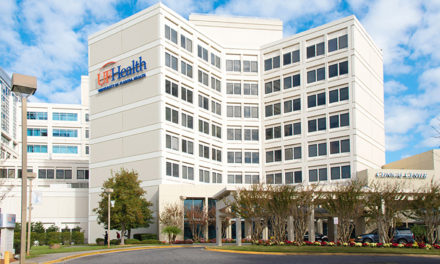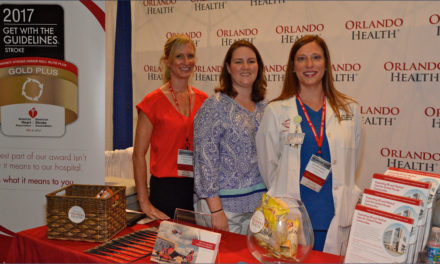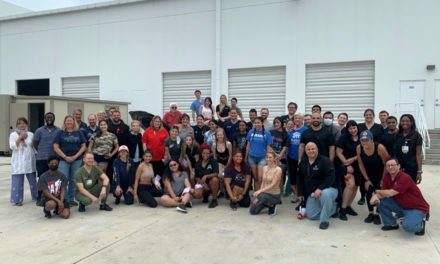Summer 2020: ACEP President’s Message
With many of the incremental changes over time, such as reimbursement, consolidation in the health care markets as well as many others, growing numbers of residency programs, and the growing volume of acute unscheduled care outside the ED, a pause for collective thought was needed. As a result, I convened the Future of Emergency Medicine Task Force.
Flash forward a few brief months and we not only have a pandemic, but also the worldwide Black Lives Matter movement that has touched communities throughout the world. And currently, in the U.S., most of our communities seem to have decided that COVID is over enough that even relatively minor concessions, such as a mask and social distancing, are too much of an imposition.
With much of what has transpired related and leading to the world where we live, I think about the energy and intention that is necessary to solve these issues. Societies often get caught up in the need for immediate gratification. The dopamine and adrenaline responses to this need inundate us through social media and nearly every type of media. Those connections draw us to those who fill that need, often aligning us against some seen or unseen villains, and moving us away from discussion and dialogue that we need to move forward. As emergency physicians, we clearly and deeply understand the quick sprint. For many of us, the pull to what we do is the ability to quickly assess and solve problems, facing frustration with the barriers to achieving them. Frankly, that frustration is also the pain that moves us to seek longer-term solutions.
The difficulty in living within that atmosphere for too long is clear. It renders us, at times, incapable of the conscious intention that forces us to look deeper into issues, which could lead to longer-term solutions. In the past few weeks, I have been reminded multiple times of work that has been done over time within ACEP by our staff and volunteers, physicians and others, that have led or are leading to change. In June, a law related to surprise medical billing in Georgia passed that encompassed many of the components we feel are necessary to protect patients and provide fair compensation for the work that we do. The Georgia ACEP Chapter has been working with the Georgia Medical Association and other specialties for years. Within the College at the national level, the Reimbursement Committee has also worked for years on this issue. When Dr. Gerardi was President, he convened a Joint Task Force with the EDPMA to draw more ongoing resources to SMB, of which I was the Board liaison. Those efforts have significantly altered the course in Georgia. I also think about the work of the Alternative Payment Model Task Force — their ongoing efforts led to an AUCM model that is currently being addressed with state and commercial insurers.
Throughout my career, I have worked in the cities of Cleveland, Chicago and Baltimore, watching the barriers to care in these communities lead to significantly impacted health outcomes. Like many of you, those experiences have been formative in my career. With growing understanding of the social determinants of health, our EDs have moved farther into the care delivery system both in-front and in-back of the acute visit. In Baltimore, I experienced first-hand the shift in our delivery system as the payment model changed and the care reached people instead of populations. Building health care delivery systems that provide better outcomes requires an understanding of communities from a very granular level, but it is achievable if we work with ongoing purpose. My experience and interest in Baltimore are part of what inspired me to get another degree in Healthcare Quality from the Jefferson College of Population Health.
Despite some significant changes in mobility in our communities and businesses, COVID-19 quickly resurfaced when all mitigation measures were ignored. Despite some effort over time to reduce disparities and improve social determinants, recent events have demonstrated that we are nowhere near equity in our society. As I watched the nearly 9-minute video of George Floyd’s death, I was struck by how many things had to go completely wrong within the system to allow that to happen. The officer at the “tip of the spear” must be responsible, but if the latent issues that led to that outcome are not considered and rectified, those actions will continue. Health care has its own root cause analysis processes which, when done well, work to that end.
As a College, we are already pivoting to a new world. From our Strategic Plan to the work Dr. Rosenberg has done for next year with staff and committees, we are making change. In addition, that FOEM Task Force has led to great minds in our College and beyond, preparing for a Summit that will create more conversation on our specialty. Part of this will be specific to the pandemic. All of those efforts are not to have certainty on what is needed, but to continue learning from each other.
As leaders, this is our “lane.” Each one of us personally needs to know, understand and hardwire our own vision. Collectively, we must drive the same way: we need to use our energy as sprinters and control our efforts to achieve great results in the marathon. We need to inspire and listen, open our minds and our communication, find time to regroup and then do it all over again. We may never see a year as challenging as 2020, but then again, I know we will look back and be comforted and content with the directions we took as a result. ■
This article is part of the following sections:

